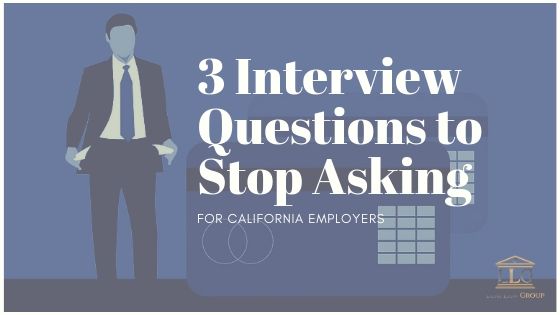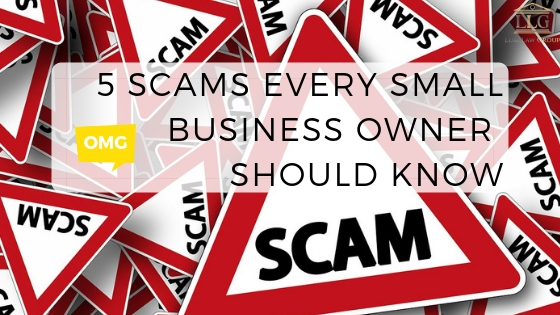What Parts of Your Business Should You Evaluate Before Expanding Overseas?

After becoming successful, many companies to expand their business operations globally. In the US, most entrepreneurs fail within the first five years, so if your business is still standing—congratulations! As a result, you might think because your business is successful here in America that you can easily spread your business out to the rest of […]
Does your business act like a business?

Don’t say we didn’t warn you, but the implementation of new tax regulations may cause many business owners to lose their business deductions when their “business” is reduced to a mere hobby. Budding entrepreneurs need to ensure their business is set up correctly. Meanwhile, existing business owners need take a magnifying glass to their business […]
Business Safety Requirements You Shouldn’t Ignore

As a business owner, you understand the plethora of risks that are placed on not only yourself but your company as well. The most important of areas to have a risk assessment conducted on is on your safety requirements. A common mistake made within a variety of “low risk” jobs such as you would find […]
Event Space for Your Small Business

Hosting events for your small business is a great way to bring your team together, gain exposure in the community, and network with industry partners. Whether you’re planning a training, networking, or some other type of special event, it’s vital that you make the most of it. To help you plan the perfect event, here’s […]
How Data Analysis Can Improve Your Small Business

If the term “data analysis” seems frighteningly out of reach for your small business, let us clear up how it can be of help. We are also a small business and often find ourselves dealing with an overwhelming amount of data, or options, and we feel like it’s getting out of hand. So data analysis […]
4 Assets That Can Help You Scale Your Startup

Just because you have a small-scale business operation doesn’t mean you have to forego a professional look and feel. In fact, securing a professional appearance is essential to the successes of all small businesses. Consider using these four assets to help your small business project a confident and high-level demeanor. A Professional Phone Number Voice […]
Which Comes First? State Registration or Federal ID Number?

Did you ever wonder which came first, the chicken or the egg? Similarly, you may have wondered if you should be filing your company with the State or with the Federal Government first? Or perhaps they’re just one and the same? They are not. There is an order which you should follow, but consultants offering […]
California Business Owners: Stop Asking These Interview Questions!

If you’re a small business owner who isn’t accustomed to hiring, you’re probably unaware that many of the common interview questions from “back in the day” are now illegal to ask in California. We’ve divided this article into two sections: the three questions you need to stop asking now, and the three questions you should’ve […]
4 Characteristics of Wildly Successful Startups

If you’ve studied successful startups, you might think that what makes a startup take off or remain permanently grounded is just luck–or a fluke. While all startups are unique, and there’s no guaranteeing that one will be a success, there are certain characteristics of startups that help them succeed better. Here we list the characteristics […]
3 Things You Can Do to Make Interviewing Job Candidates Easier

While startup founders are well-known for their skills in selling their business, they’re also known for being smart about hiring. Small business owners, especially long-term owners or new entrepreneurs, may not be as hiring savvy. If you’re new to the hiring process, here’s a few strategies you can employ for a more successful interview. Prepare […]
Small Business Owner: Avoid These 5 Common Scams

At the end of the year, many small businesses take stock and plan how to do better in the next year– much like how individuals check their bank accounts and step on their scales to see how they can improve those numbers come January 2019. The desire to improve is commendable. Yet, where large companies […]
5 Things Startups Need to Know About OSHA

Every business should be concerned about employee safety, whether you are part of a large organization or a fairly small one, including startups. And even offices have occupational hazards, so don’t be lulled into thinking that only jobs involving physical labor need to be aware of OSHA regulations. If you’re part of a business, then […]
5 Game-Changing Business Tips for Entrepreneurial Immigrants

In the U.S., you have already seen plenty of active businesses everywhere. What you may not notice is that many companies fail and are replaced on a regular basis. Entrepreneurial immigrants frequently do very, very well in business-friendly locations, but they aren’t immune to harsh market forces either. Here are five essential tips for immigrants […]
Small Business Owners: Trademark Your Brand and Grow Your Business

Our intellectual property attorney, A. Justin Lum, was interviewed by Steve Thompson, writer of 245 Days to Go, a blog for small business and startup entrepreneurs and Contented Writing. One of the biggest issues for a startup business is protecting your ideas. Every startup is built on the solid foundation of an idea and the […]
Recent Supreme Court Patent Ruling that Affects You, the Entrepreneur

Yesterday the Supreme Court made it easier for patent litigation winners to obtain their attorney fees from the losing party in “exceptional” cases. Although there are standards to be met, the Supreme Court has, in overturning the Federal Circuit, given more power to both plaintiffs and defendants when there is misconduct by either party during […]

